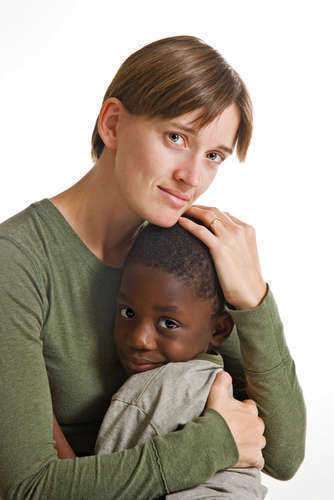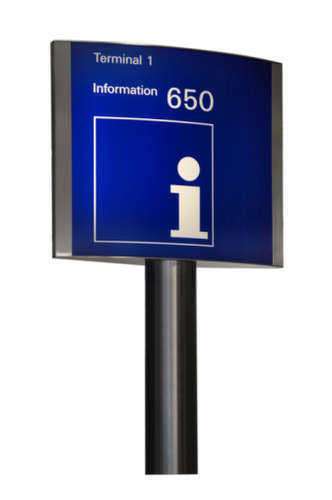
What is Virginia Adoption?
Virginia adoption is the process of placing children—who are permanently and legally separated from their birth parents—with a new family. Virginia adoption is a legal and social process that provides new parent(s) with the same obligations and rights as biological parents.
VA adoption procedure is governed by Chapter 12 of the Code of Virginia. According to Virginia adoption law, there are only two forms of adoptive placements that are permitted: agency and non-agency placements.
Agency placements—under VA adoption law–take place when the child is in custody of local departments of social services or licensed child-placing agencies. Under these circumstances, all associated parental rights are eliminated and custody is granted to the agency. Following this, the agency must consent to the child’s adoption.
A non-agency adoption occurs when the child is not in the formal custody of an agency. Under a non-agency placement, the legal guardians or birth parents consent to the adoption. In this form, parental rights are eliminated by final order of the adoption.
With the exception of authorized child-placing agencies only biological parents and legal guardians are permitted to place a child for adoption in the state of Virginia. Although any person under VA adoption law may provide assistance to biological parents with regards to locating a prospective adoptive family, only birth parents and legal guardians actually place the child for adoption.
According to Virginia Adoption Law, there are Three Different Forms of Non-Agency Adoptions:
• Stepparent Adoptions According to VA Adoption Laws:
o Stepparent adoptions—under VA adoptions laws–occur when the spouse of an adoptive or birth parent is adopting the child. In this method, consent is either not required or has already been obtained. Investigations—undertaken by the state—will only take place if the court determines it is fundamental before the adoption is affirmed. If the court fails to consider an investigation necessary, the Virginia adoption agency will become involved when the petition is filed and the circuit court enters the reference order
• Parental Placement Adoptions According to VA Adoptions Law:
o These types of Virginia Adoptions are governed by the Code of Virginia sections 63.2—1230 through 63.2—1240. In parental placement Virginia adoptions, the responsible child placing agency engages in a home study to report the worthiness of the adopting parents. Following completion of the home study, the agency will file a petition with the juvenile and domestic relations court. This body—using VA adoptions–will execute consent and award custody to the prospective Virginia adoption parents. The juvenile and domestic relations court—based on VA adoption law–is responsible for reviewing the home study report and collateral material to evaluate whether the stipulations and requirements of VA adoption law have been satisfied. The court is also responsible for accepting parental consent and transferring custody to the Virginia adoption parents. This court also is responsible for accepting parental consent and transferring custody to the adoptive parents. Virginia adoption petitions may then be filed with the local circuit court
• Adult Adoptions According to VA Adoption Law:
o Adult adoptions are a form of VA adoption where the individual (over the age of 18) files a Virginia adoption petition with the state. Virginia adult adoptions are governed by section 63.2-1243 of the Code of Virginia. In an adult VA adoption, the agency will become involved when the adoption petition is filed in the circuit court system
Steps to a Virginia Adoption:
1. Initial Contact: Based on VA adoption law, the first step to a Virginia adoption is calling (800)-DO-ADOPT or e-mail the Adoption Resource Exchange. During this initial correspondence you may ask any questions that you may have concerning Virginia adoptions. After these inquiries, you may be referred to a local Virginia department of social services to private child placing agencies for official orientation.
2. Orientation: According to VA adoption, you– following your initial correspondence,–will be invited to a meeting to learn more about the Virginia adoption process and the types of children waiting to be adopted. The orientation—according to VA adoption–may include a group meeting with other families interested in Virginia adoptions or may take the form of an individual meeting with an agency social worker. Regardless of the format, you should ask any questions pertaining to Virginia adoptions that you are curious about.
3. The Application: According to VA adoption, to apply for Virginia adoption services, you must complete the official application. You can request the application in person, by mail or via the telephone. Application forms for Virginia adoption vary; however, most will ask you questions concerning your health and family history, your income and your relationship status. Complete the application, sign it and return it to the Virginia adoption agency. The social worker—under VA adoption law–will then explain the process of the home study and how the information you submit will help determine the type of child that will best fit your situation.
4. Home Study: During the home study process, you will go-over the reasons for wanting to adopt and the type of child you can best parent. The social worker will, in turn, go-over what the state expects from you as an adopting parent. All members of your immediate family are involved in the Virginia adoption process. The home study is finalized through a series of meetings (held at your residence). During these meetings the social worker or state will walk-through your house and take notes concerning your lifestyle and living habits. When the home study concludes, you and the social worker will decide whether you—as determined by Virginia adoption laws—are fit to adopt. If you are determined equipped to adopt, the state will decide what type of child you can best raise. Remember, during the Virginia adoption process, the social worker is not looking for the perfect family, but instead, the family who has most successfully coped with life experiences.
5. Selection: If—after finalizing the home study process—the social worker determines you able and ready to adopt, the state will show you pictures of available children. In addition to pictures, VA adoption law requires the state will provide basic information concerning each child. When you a find a child you are interested in, you and the agency will consider whether your family is right for the child. Deciding against Virginia adoptions—with regards to a particular child–does not prevent you from being considered for other Virginia adoptions.
6. Placements: The Virginia adoption placement process begins with visits between the prospective child and the adopting family. The number of visits before the affirmation of placement is dependent on the child’s ability to cope with a move. When the social worker feels that the child is ready to be formally adopted, arrangements are made for placements in the adoptive home.
7. Post Placement Practices: Once the child is placed in the home, the Virginia adoption worker will visit you at least three times during the first six months. These visits intend to facilitate the transition phase for both you and your adopted child. During this stage of the Virginia adoption process, you should speak with the worker about any concerns you have. Virginia adoption laws require the child to live in your home for at least six months and be visited at least three times before the Virginia adoption can be finalized
8. Legal Procedures and Finalization: To affirm Virginia adoptions under VA adoption law, it is best to get an attorney. The Virginia adoption attorney will file petitions with the adoption court to formally enter the final order of Virginia adoption.



























